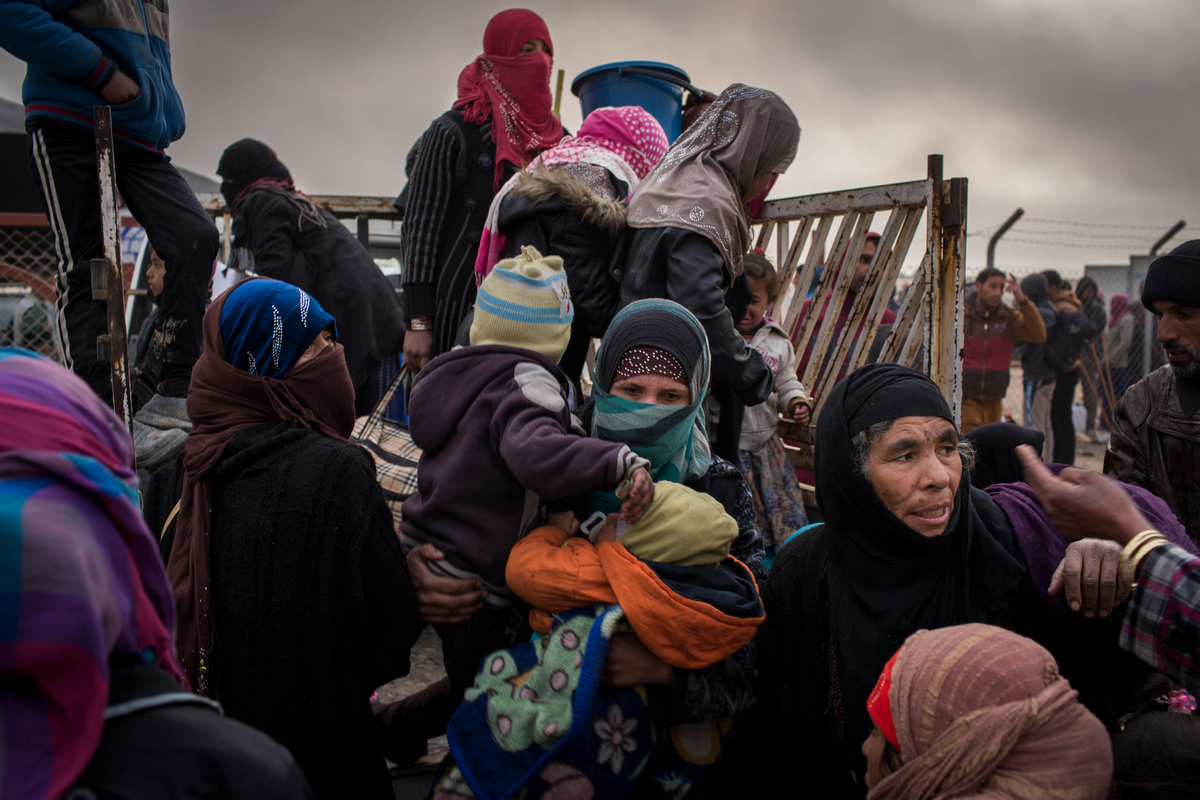Into Mosul's Third Month, UNHCR Bolsters Response to Help Newly Displaced
Into Mosul's Third Month, UNHCR Bolsters Response to Help Newly Displaced

As the Mosul conflict enters its third month, and the number of people displaced climbs towards 100,000, UNHCR, the UN Refugee Agency, is bolstering its capacity to host and support civilians fleeing the fighting as cold weather sets in.
So far, 96,864 people have been displaced by fighting since October 17, when military operations began. The bulk of new arrivals – 57,000 people – are currently being sheltered in UNHCR-supported camps in the area. Significant numbers have also been fleeing Hawija in Kirkuk ahead of an offensive to retake the last areas controlled by armed opposition groups; since August, 51,000 have been displaced.
This week, UNHCR visited recently accessible areas around Mosul. Living conditions in the villages were rudimentary. Returnees and displaced families staying in the villages lack electricity and access to clean water. Local markets are not functioning and there is an urgent need for kerosene and warm clothing. UNHCR is coordinating with partners deliveries of needed assistance.
We have been stepping up winter distributions, providing thermal blankets and quilts to 11,200 people around Mosul, and we plan to step up distributions in coming days to reach an additional 5,000 families.
UNHCR has six camps receiving people from Mosul, with another three under construction. The nine camps would have a capacity for 102,000 people. UNHCR-built camps include Al Alam (2,400 people); Qaymawa (4,792 people); and Hasansham U3 (10,860 people). There is still some capacity at Al Alam (140 plots). The Iraqi Government is building Al Alam 2 camp nearby, with a planned capacity to host up to 8,000. Camps built by the Ministry of Migration and Displacement with UNHCR support include Khazer M1 (29,072 people) and Khazer M2 (10,103 people).
In Kirkuk, additional camps are hosting people mainly displaced from Hawija. UNHCR camps in Kirkuk include Daquk (7400 people, available 120 plots); Leylan 2 (2900 people, available 420 plots); Leylan (2900 people); Nazrawa (8700 people).
UNHCR's Mosul emergency response fund, set at USD 196.2 million, is 57 per cent funded. The largest funding gap is for the winter programme and we are urging donors to help us close the shortfall to prepare for possible additional displacement and help offset the miserable living conditions.
Assistance items distributed to the newly arrived families in camps include blankets, mattresses, stoves, plastic sheets, kitchen sets, quilts, insulation sleeping mats, tent insulation kits and heaters. Away from camps, 48,972 blankets and quilts have been provided in the newly accessible areas of Gogjali, Nimround, Shura and Qulan Tappa to 12,243 families.
Winter kits and other items like kerosene are also being provided in other parts of Iraq including the centre-south (camps in Anbar, Baghdad and Salah Al-Din), and the southern region (Diyala). In Dohuk, Erbil and Sulimaniyah, UNHCR has reached more than 10,000 displaced families with cash assistance since October. We have also provided cash assistance to almost 10,000 Syrian refugee families in those areas.
For further information on this topic, please contact:
- In Geneva: Matthew Saltmarsh, [email protected], +41 79 217 3140
- In Iraq: Caroline Gluck, [email protected], +964 780 920 7286








